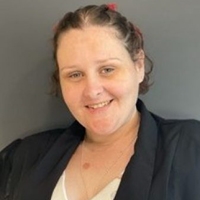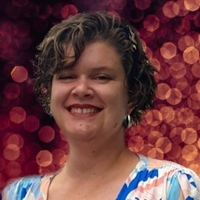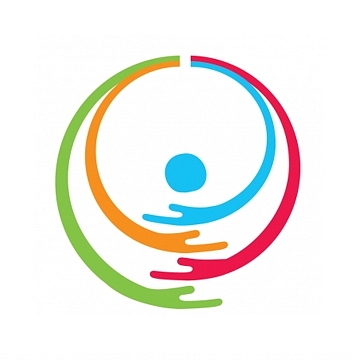Celebrating International Day of People with Disability
Today is a celebration! IDPWD is a United Nations (UN) observed day celebrated internationally. It aims to increase public awareness about inclusion of people with disability and celebrates the achievements and contributions of people with disability. IDPWD is an opportunity for us to make positive changes to the lives of the 1.3 billion people with disability globally. It is an opportunity for organisations, individuals and the community to better understand how to include people with disability.
This year’s theme for IDPWD is ‘Leadership and participation of persons with disabilities toward an inclusive, accessible and sustainable post COVID-19 world’. According to the UN, even prior to the pandemic, people with disability globally are less likely to access health care, education, employment and to participate in the community. ‘An integrated approach is required to ensure that people with disability are not left behind. Disability inclusion will result in a COVID-19 response and recovery that better serves everyone, more fully suppressing the virus, as well as building back better.’
During the pandemic, many people transitioned to working from home or remotely and there was greater reliance on technology to do so. Technology acted as an enabler to keep businesses running and thriving, employees engaged and working and enabled customers to access goods and services online/remotely. However, it is important to remember that not all organisations had existing systems that were accessible or had already factored in digital accessibility. This meant that websites, systems, apps or communication platforms that were key to ensuring continuity of employee or customer experience were in fact excluding some colleagues or members of the community.
For IDPWD we spoke to Kylie Pollock, Principal Accessibility Consultant at TTC and Kirsty Smith, business administration professional, student and advocate. We discussed their personal lived experience during the global pandemic and asked for their views about this year’s theme and the role of technology in better including people with disability. We started our conversation by discussing any benefits or positive changes that have emerged from the changes that occurred during the pandemic.
Kirsty shared that the way we work has needed to adapt and become more flexible. ‘There has been a huge increase in telecommuting and conference calls. This shift in the way we work has been pivotal in highlighting any unconscious bias towards working flexibly and has demonstrated that people with and without disabilities can work from home and can be much more comfortable doing so. My commute has been from my bedroom to my office chair, I have continued to meet all deliverables and I think everyone is more accepting of people’s lives now. There is a better work life balance’.
In relation to benefits, Kylie shared that prior to COVID she faced numerous barriers to remote working, including technological and social barriers. However once COVID hit, her experience of working remotely became a significant asset. ‘I was involved in the strategy for supporting teams through COVID and their return to office journeys, as well as reviewing and enabling tools to assist in cementing a long-term hybrid way of working or even just being support to my peers struggling with the mental load from being on conference calls all day’.
The biggest benefit Kylie experienced was how quickly digital accessibility could be uplifted when it was no longer treated as an outlier, but the norm, and budgets were assigned. Within 7 days of a fulltime work from home strategy there were new tools, improved video, better chat features and closed captions.
Both Kirsty and Kylie experienced significant challenges during the pandemic, including challenges with health care and for Kirsty, challenges navigating the world of prosthetic repairs during COVID-induced manufacturing shutdowns in Germany. Routine medical appointments became inaccessible and even getting the COVID vaccination was challenging for Kylie, and the experience exacerbated her disability. ‘Mental health and medical treatments have been challenging during COVID. I live alone and in a Local Government Area of concern. Friends and family are well outside the boundaries, and I missed out on a massive year of family celebrations.’
Kylie advised that her use of technology did not really change in frequency during the pandemic ‘but the quality of the technology and social engagement improved to an unbelievable degree. For the first time in 4-years I saw the face of one of my colleagues as they switched on video for the first time, and I could clearly hear and identify those speaking on a conference call. If I have a bad connection, there are now closed captions. It made me feel included and less apologetic that I need to work differently to others.’
Kirsty shares that her use of technology increased dramatically during the pandemic. ‘As people are not in the office as much, even before you factor in conference calls, the emails have increased significantly. Add in online university and telehealth and it seems I am always on a screen. It adds quite a mental load. I find myself completely exhausted by the end of the day.’
‘Whilst there are more tools and more options available now there are still barriers. Tools are not always accessible, sometimes people turn off features like chat which can be needed if your microphone is not working and sometimes people just use the technology in inaccessible ways. At Uni, a limited number of students were allowed to attend in person, the rest online. The lecturer tended to teach to the small number of students present. Facing them and not the screen and sometimes forgetting to check in with the online class for questions.’
Finally, we asked Kirsty and Kylie what leadership and participation opportunities they see for people with disability to ensure a more accessible post COVID world. Kirsty feels that she has seen some gains, but she has not seen ‘an increase in leadership represented by the disability community.’
‘I think that is really important and needs more focus and opportunity. I fear the improvements seen will not be sustained once people’s movements are no longer restricted.’ ‘I would like to see more representation of people with disabilities in leadership … because the right tools and supports have been put in place, and society continues to focus on community and inclusion.’
Kylie believes that ‘there will be a lot more opportunities for participation and career development than what we have previously seen. In the past 18 months everyone has had some insight into how inaccessibility affects their health and organisation’s effectiveness. I believe this focus shift during COVID has made us reassess inclusion through a new lens as everyone at some point encountered inaccessibility and understands it’s social implications.
Already we are seeing job ads that do not list work locations, limiting interstate travel, embedding accessible technologies and focusing on better and smarter ways of working. I think COVID has been a real catalyst in building empathy – and that is what will move us forward. It is no longer just the disability community standing up and saying, “we can do better.”’
If you are interested to learn more about digital accessibility, inclusion of people with disability in our digital world or would like to progress your organisation at any stage of its digital accessibility journey, please do connect with us. We encourage you to watch our recent webinar to celebrate World Usability Day found here [Link to Webinar Recording].

Kirsty Smith
Kirsty is a professional working full-time in business administration, studying a Bachelor of Applied Management at Federation University, and an emerging disability advocate. In addition to being neurodiverse, Kirsty is also an above-knee amputee with an osteointegration prosthetic. Several of Kirsty’s friends and family also have disabilities and Kirsty also has experience as a carer.
Kirsty has been affected significantly by the pandemic including changes to working arrangements, challenges with quarantine and navigating the world of prosthetic repairs during COVID-induced manufacturing shutdowns. Kirsty was married in Queensland this year and live streamed her wedding to family and friends around Australia.

Kylie Pollock
Kylie has recently joined TTC Global as our Principal Accessibility Consultant based in Sydney, Australia. Due to impacts of her disability Kylie as had flexible working arrangements and predominately worked remotely for over 5 years, so when COVID arrived she was overqualified to handle the challenges of remote work.
During the pandemic Kylie navigated a job change, living alone in one of the Local Government Areas of concern, being hospitalised for a life-threatening condition in addition to her standard medical treatment, finding ways to celebrate milestone birthdays of family and friends and even attending Kirsty’s virtual wedding.




